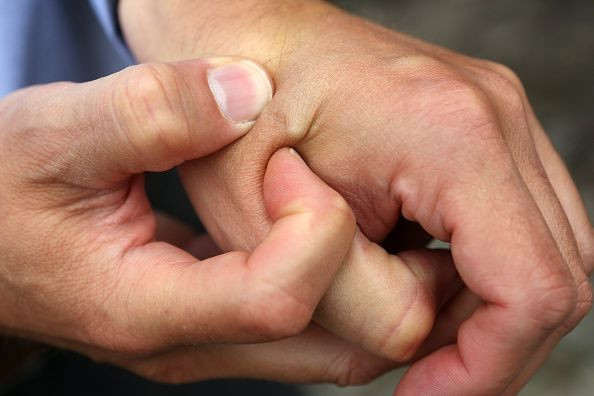Biohacker Named Meow-Meow Gets Transit Card Chip Implanted In His Hand

Wallets containing valuables such as credit cards, bus passes and identification cards get misplaced all the time. And it may be a hassle to get them replaced. A Sydney biohacker apparently found a solution to the age-old problem when he had a transportation chip implanted into his hand, giving him access to transit with just the wave of his wrist.
Meow-Ludo Disco Gamma Meow-Meow — his legal name — had his Opal transportation chip implant done by U.S.-based lab Dangerous Things. Opal is a transportation system based in Sydney which allows access to train, bus and ferry service. The 10mm by 6mm chip was placed in bio-compatible plastic, which was implanted under the skin of his left hand, ABC News reported Tuesday.
READ: Qualcomm Announces New Fingerprint Sensors That Work Under Glass, Display & Metal
If he lost his wallet, he will at least be able to get home. Having the implant means he will always have the Opal transportation card at his disposal. He has yet to use the device and wondered what reaction he’d get from transportation workers.
"It gives me an ability that not everyone else has, so if someone stole my wallet I could still get home," he told ABC News.
He warned that the procedure is risky and should be performed by professionals. Apparently, there is a risk of bacterial infection when anything is implanted underneath the skin, so proceed with caution.
"Most certainly don't try this at home unless you know what you're doing," he said. "Be aware of the risks involved and make a wise judgment based on that."
READ: The Future Of Cash: Is Paper Money Becoming Obsolete?
Meow-Meow reportedly had two other chips implanted in his hand and arm, plus one that he saves documents on. He may have an affinity for technology and what it may accomplish in tandem with the human body. He claimed that the introduction of computer chips into the human body is something that the future held.
"My goal is to have frictionless interaction with technology," he said. "Putting technology into the body is not unusual."
"While one might be for birth control, which we've decided is pretty OK, this one is to make catching public transport easier," he added. "You'll see it in parole, in nursing homes where people are unable to divulge medical details. If I could go to a government department and swipe my hand, that would make accessing these services a lot easier."

However, Meow-Meow’s procedure had not been legally approved by Opal and apparently conflicted with its terms of service that prohibited tampering of any kind.
"It will be really interesting to see what happens when the first transit officer scans my arm," Meow-Meow said.
An NSW representative told HuffPost Australia Wednesday that it does not encourage the tampering of Opal Cards, which breached their terms of use, so Meow-Meow’s experiment may have to be reversed at some point. Due to the company's regulations, his implanted chip could become void.
"In addition, changing the physical attributes of the card may impact the reliability of the Opal card," the representative said. "Customers that are caught tampering with their Opal card may have their card cancelled."
© Copyright IBTimes 2024. All rights reserved.




















